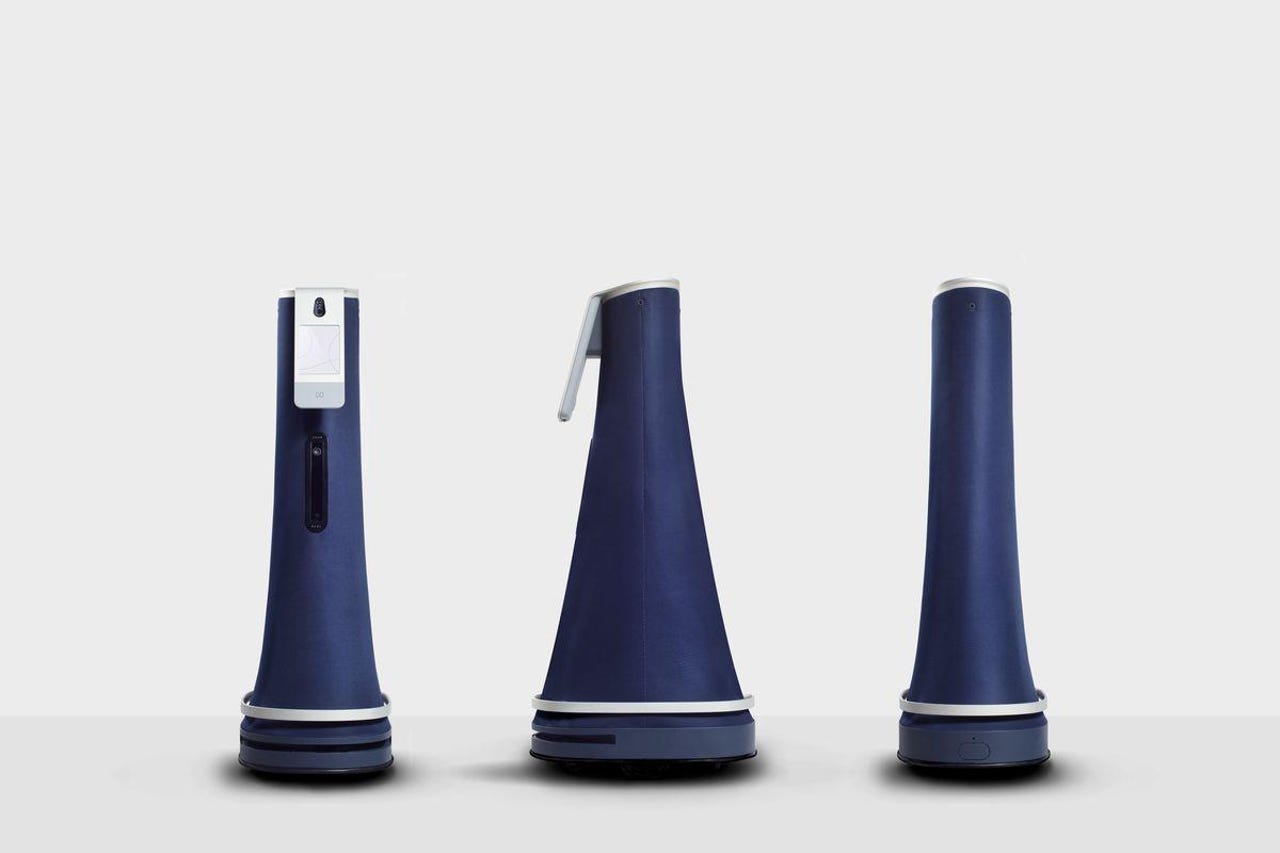Robot security guard gets boost to fight crime


Cobalt Robotics, which makes indoors autonomous security robots, just got a significant boost to give human guards a hand. Following a $13 million Series A last March, the company just closed a $35 million Series B.
Like its better known competitor Knightscope, Cobalt's security guards rove around security sensitive locations to monitor facilities utilizing an onboard sensor package. Cobalt's five-foot blue robots have 60 sensors in all, including video, RGB, infrared, thermal, ultrasonic, and lidar.
Robots are quickly breaking into (pun intended) the physical security space, a global sector that could exceed $119 billion by 2023. Robots can help bridge the gap between traditional security measures, such as cameras and access control, and manned guards. At least that's what developers are hoping. The use case has long been tantalizing in the automation field, although notable stumbles by security bots and high price tags have so far kept penetration to a minimum.
Operating similarly to security companies that monitor home alarms, Cobalt pairs its human specialists with on-site robots to offer 24-hour per day patrols. The company is quick to point out that its robots are meant to assist human security personnel by taking over some of the leg work. Anyone who's followed automation will be accustomed to sensitivity in the industry over the idea that these technologies could cost people their jobs.
Must-see offers
"Our goal is to combine the best parts of machines (unwavering attention, perfect recall, & super-human sensing) with the best aspects of people (warmth, responsiveness, and adaptability) to create service robots that dramatically improve the quality of life for everyone and fundamentally redefine the modern workplace," says Dr. Travis Deyle, Cobalt CEO.
Cobalt is trying to alleviate cost as a prohibitive factor with a robot-as-a-service model that's become common in other robotics sectors, such as light manufacturing. As-a-service models are typical of emerging enterprise hardware technologies that would require customers to make large capital investments under a typical sales model. The idea is to amortize the cost of the hardware and associated services with more palatable monthly service fees and shorter terms.
So far, Cobalt has deployed security and facilities management services to clients in technology, defense, finance, and manufacturing, as well as Fortune 50 companies -- although the company is quick to point out its technology scales down and is just as appropriate for small startups.
That sales pitch seems to be doing the trick for investors. The latest round, led by Coatue, will help Cobalt drive geographic expansion of services throughout the domestic United States.